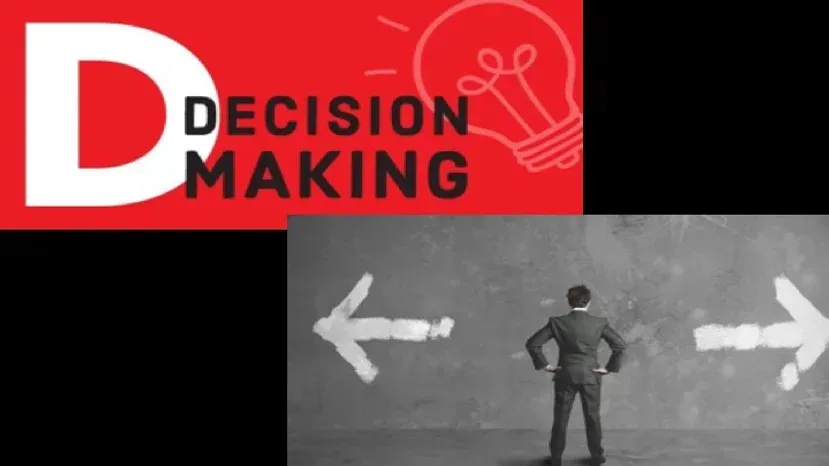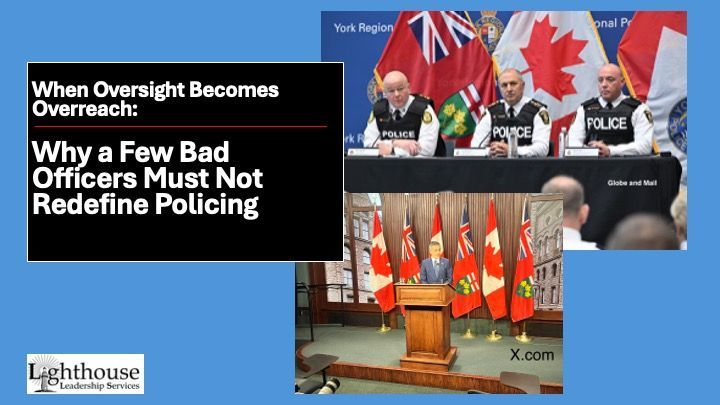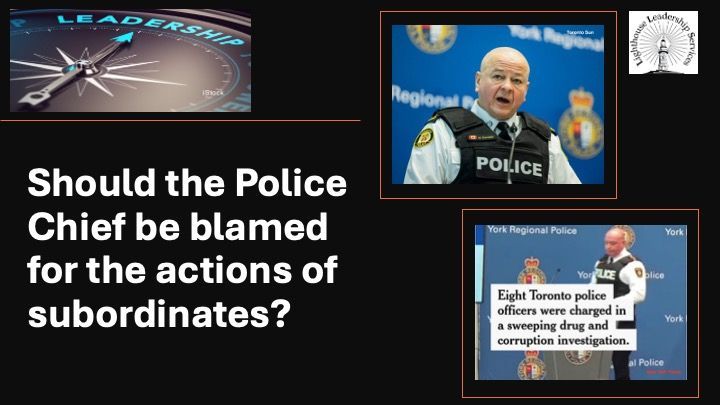New Paragraph

I distinctly recall the decision-making model of the 1970’s in my para-military organization being very hierarchal. Shift supervisors had specific authorities bestowed upon them based on set policies. Anything above their pay-grade went to a higher-level manager for a decision, and then on and on up the food chain from there. Although our binders of written policy were prefaced with the caveat that they were “only a guide”, the reality was that if you couldn’t find the answer to your question within that policy while pondering a decision-making dilemma, you had better contact someone with more stripes, pips or crowns on their shoulder-boards. God help anyone who had the nerve to make a decision contrary to what was etched in policy and/or outside their policy-driven span of control. The grey areas were few and far between!
I don’t know that it was an overly onerous model at that time frankly, it’s just the way it was. We didn’t know any different. However, there were less external oversight bodies; no 24-hour live news or social media pressures; and less public scrutiny. So even if you couldn’t contact the appropriate manager by telephone immediately, they wouldn’t likely hear about the incident or be questioned about it before you told them anyway. That was then.
In the two decades to follow, for the most part the benchmark for decision-making was pushed down to the lowest possible level. Lower-level managers were given much more control over their allotted budgets; there was less second-guessing of local operational decisions; and mid/senior level managers were allowed much more latitude to select/promote people for vacancies within their areas of command. “Some” so-called leaders still tended to micro-manage within their areas because it was the nature of the individual, not because it was an organizational ethos. Certainly, some managers took advantage of the situation and improperly made the odd decision without considering the broader organizational impacts, but for the most part those individuals were taken to task.
But a large number of supervisors and managers I meet with in my work tell me that many organizations of 2019 have shifted back to a more centralized model, negatively impacting morale and ultimately hurting the self-confidence of those managers and their trust in the executives of those organizations.
Some claim that they have little to no decision-making ability and that almost all decisions are made centrally, and that local manager input is largely disregarded. This obviously creates a feeling of malaise among those managers and much frustration across the majority of employees who are continually waiting for a seemingly routine decision to be made by “someone, or anyone”. When a decision from the centre does come, particularly when it is totally contrary to the locally suggested course of action, irritation abounds, particularly when there is no rationale communicated as to the “why”.
We all know managers that were so reluctant to make a decision out of fear that an error could cost them future promotions, that were never promoted because they couldn’t make a decision. As a rule, executives should limit the amount of decision-making required by them and drive as many decisions down as safely and reasonably as possible. We need to encourage innovation and some level of risk-taking within broadly established parameters.
We’ve also experienced good managers who were actually effective decision-makers until they had to report to a micro-manager executive that ineptly questioned them non-stop until they lost self-confidence and similarly second-guessed their subordinates ad nauseam.
Downstream from these examples, managers, supervisors and many employees often threw their hands up in despair, developing the “why even bother” attitude. This did nothing to develop employees or build employee trust. They lost interest as well as complete confidence in those above them, and their morale deteriorated. And we all know what happens when morale goes bad: people go bad and bad things happen.
In my view, there is a clear need for centralized decision-making in some circumstances:
· Low-frequency matters that bring a significant level of risk to the organization, from financial, legal and/or precedent-setting perspectives. Examples being: broad bargaining group issues that will result in high-risk labor relation conflict; and civil liability matters that may establish unworkable standards and financial loss.
· Issues that will broadly impact the organization, as opposed to an individual area. Example: High-profile actions that may cast a negative light over the organization; and issues that will affect operations/administration in multiple areas of the organization.
It’s a given that on occasion, circumstances and the need for expediency will require immediate decisions on a local level. When that happens in circumstances as described above, then the need for a speedy notification up the executive chain is essential. Effective communication and required damage control – if any, can then occur.
Effective leaders will:
· Set decision-making boundaries based on reasonable organizational needs, balancing them with efficiency and expediency realities;
· Ensure executive-level decisions and the rational for them are properly communicated to subordinate managers to them not only understand the decisions but to further develop their decision-making expertise;
· Include discussion around the need for consistent decision-making at managerial and supervisory meetings to encourage regular off-line dialogue between managers and supervisors;
· Encourage managers, supervisors and front-line employees to be innovative, flexible and take some calculated risk in their decision-making roles; and
· Provide positive feedback on the good decisions and debrief the poor ones with those involved – always recognizing the difference between honest attempts, complete thoughtlessness and malice.
We generally hire smart people and promote capable folks. More often than not, doing the right thing for the right reason is a part of who they are. Wherever possible, allow them the opportunity to prove that.




